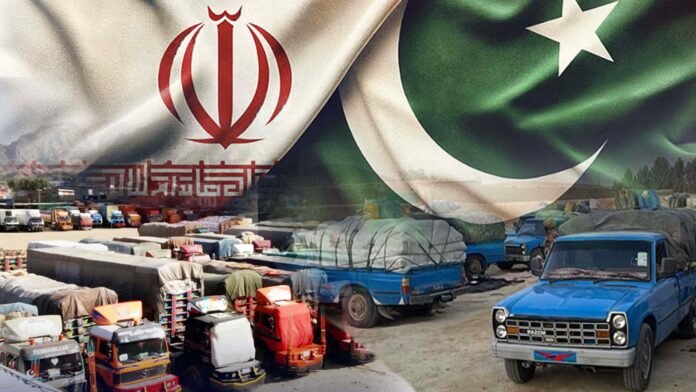Pakistan and Iran have taken a significant step toward boosting bilateral commerce by finalizing the text of their proposed Free Trade Agreement (FTA). The two nations are now in the process of exchanging lists of products that will see tariffs either eliminated or reduced, paving the way for smoother trade.
The Ministry of Commerce shared the update during a briefing to the Senate Standing Committee on Commerce, chaired by Senator Anusha Rahman. The session included senior officials such as Commerce Minister Jam Kamal Khan and Secretary Jawad Paul, focusing on trade relations with Iran, barter trade challenges, and non-tariff barriers impacting commerce.
Barter Trade Reforms and Export Issues
The briefing highlighted ongoing concerns over the closure of the Badini crossing, a key point for trade with Iran and Afghanistan. Business representatives from Balochistan warned that the shutdown could negatively affect regional barter trade. While some tension emerged between the Committee Chairperson and the Commerce Secretary regarding this issue, the Ministry confirmed it is actively seeking solutions.
Seasonal restrictions by Iran on certain Pakistani exports, including mangoes and rice, were also discussed. Officials stressed that these temporary bans aim to protect Iranian farmers but that negotiations are underway to minimize disruption to Pakistani exporters.
On the barter trade front, the Ministry introduced a new Special Regulatory Order (SRO) to replace SRO 642(1) of 2023. The updated framework addresses five major concerns raised by traders: streamlining product verification, expanding eligible items for barter trade, allowing trade consortia instead of single entities, and extending the net-off period for goods from 90 to 120 days. Commerce Minister Jam Kamal Khan noted that these measures are expected to make trade more efficient and bring Pakistan closer to achieving the $10 billion bilateral trade target with Iran.
Border Logistics and Infrastructure
The committee also revisited the reopening of the Badini crossing, closed after Afghan customs staff withdrew. The Ministry indicated it would engage with Afghan authorities and explore alternatives such as containerized shipments. Plans were also discussed to improve road infrastructure at the border and establish cold storage facilities, which could significantly streamline trade and reduce post-harvest losses for perishable goods.
Committee members emphasized the crucial role of the private sector in driving economic activity in border regions. They also praised the recent approval of the maize export protocol with China, noting that intervention from the Prime Minister’s office helped finalize the agreement.
In conclusion, the committee stressed that resolving trade and logistical challenges is essential not only to strengthen Pakistan-Iran commerce but also to ensure that the $10 billion trade target is achievable. Minister Khan confirmed his plans to visit Iran next month for the Joint Economic Commission (JEC), where further trade discussions and formal agreements are expected to be finalized.


